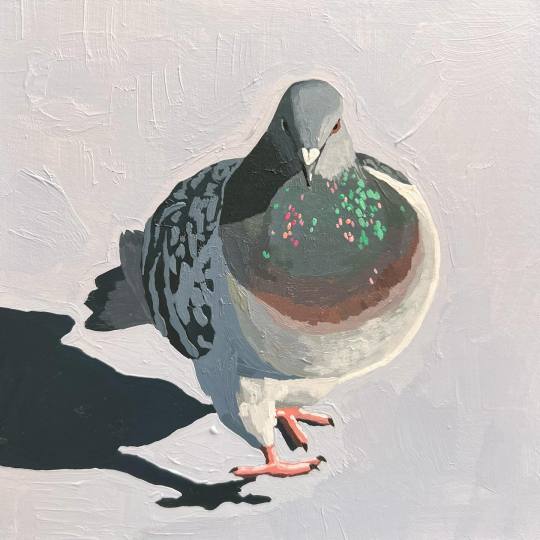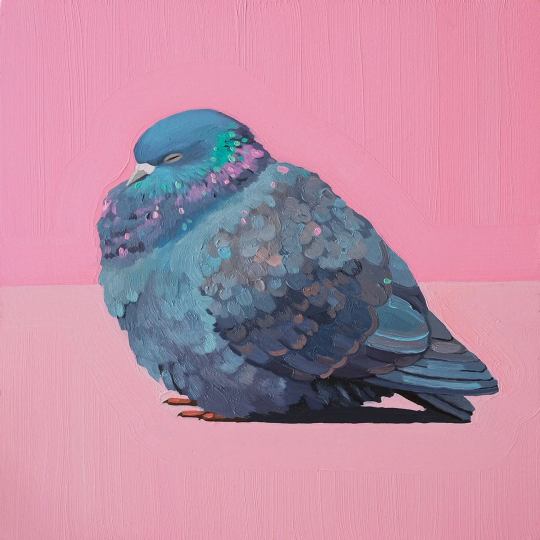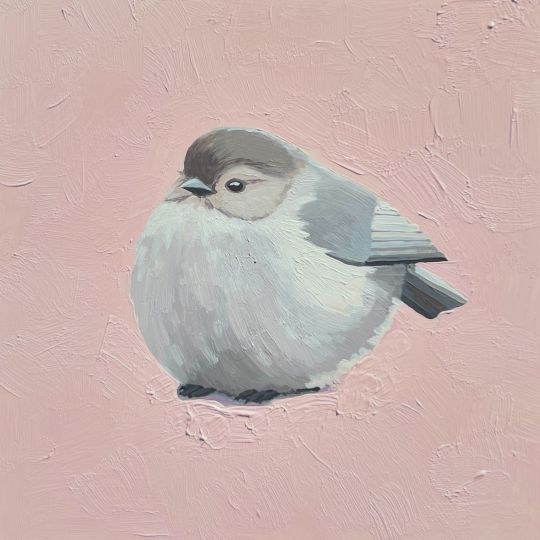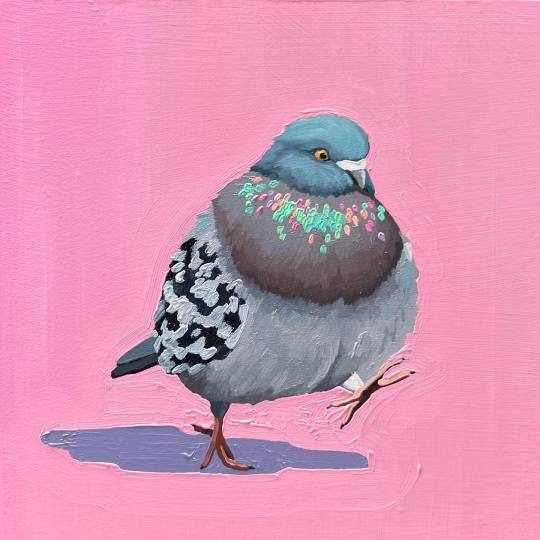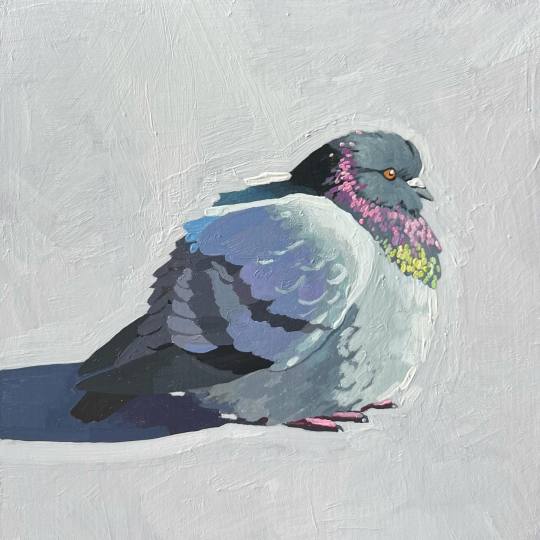Text
Idk who needs to hear it but if you have Aphantasia you can absolutely do character art. Don't let it discourage you. Especially since a good portion of art advice won't fit you and will leave you feeling like its your fault.
I have Aphantasia, its super hard to put characters in poses from my mind. I cannot draw cartoons or exaggeration well, its very hard because I do not see the drawing until it is on the page. I use so many construction lines and blocks of color and always need a reference to base my character poses on. I cannot imagine things artistically before they're on the page and it is super frustrating.
You can still do it with Aphantasia though, it just takes practice. So many of your sketches without references are going to look awful despite you knowing the proper proportions of the human body, it doesn't mean you don't know what you're doing.
It just means you need to give yourself extra help. You're not lesser or bad for not being able to draw on a whim or not having these intricate details. Trust me, I've struggled with thinking that.
The best thing you can do to work with it is collect so many references, use a pose software (like magic poser), and absolutely screenshot and collect art that has a creative element you struggle with. (For me its color, backgrounds, and splash text.) Also, maybe practice abstract art. You have a brain unhindered by a visual expectation, I recommend it. For me I like to do surrealist/abstract pictures of water and space. It takes technical skill but everyday is a good day to start practicing.
Having Aphantasia is a neutral thing. It's not bad or good, it's just there. That bad part is not acknowledging that you work differently so you need to adapt differently.
6K notes
·
View notes
Text
The problem with "I could do [X popular modern art piece]" being responded to with "then go ahead and do it!" is that I think the point that a lot of people are making is not so much "this artwork has no value" but rather "modern popular art is a heavily gatekept industry that you cannot enter into without requisite pre-existing social cachet".
So even if someone is technically/artistically able to create something on the level of a gallery piece (and, to be honest, I think substantially more people have that ability than anyone would be likely to admit) they do not exist in an environment where they have the financial freedom or recognition for that to be possible or worthwhile.
I assure you that there are millions of people who absolutely could and would want to make Pollock style abstract paintings or giant time-consuming sculptures made with garbage or whatever, but they're currently stuck in a low wage job and if they quit in order to make their masterpiece then nobody would bat an eye and they would go broke because they wouldn't have the sociocultural weight to impart that special numinous reverence that "high art" is granted, and which makes it financially viable as a thing to spend your time doing.
It is also true that a lot of people who have that cachet are able to spend their time making pretty much whatever, and will still be able to support themselves even if the art itself is fairly mediocre outside of the time dedicated to its creation.
Anyway, I feel that people are perfectly valid in feeling a sense of vague resentment at that when they visit galleries holding paint/canvas combinations that sell for more than they will earn in several years. I mean it speaks to what society is implying about their worth as a person. I don't think that it's as much about arrogance and entitlement as people like to pretend, because a lot of that comes from buying into the mystique of the Worthy Artist anyway.
5K notes
·
View notes
Text
Early morning
When I woke up today I had tears on my cheeks and in my eyes
They tasted like the lemonade we made in the summer and change
The school in my dream had spoken in tongues different from the ones I’ve learned
And my friends there left as quickly as they came
Pleas in what sounded like gibberish spilled from my lips and met my pillow in the same way as the tears
Begging my parents to put me somewhere else where I felt like I belonged even a little bit more
My pillowcase is damp now as I dry off my face
Unaware, he snores beside me, eyelids fluttering, chapped lips parted slightly
I touch his skin and it is the only thing that keeps me grounded when everything spins
He is the only one that will know what the red dots on my calendar mean,
The only one that will know that the small hearts mean him
And hopefully he knows that I could never make them big enough to sum up the affection that truly lives inside of me
How wonderful it is to be loved like this
How unfamiliar
How different it is from the dark fog of my mind in 8th and 9th grade
I haven’t learned much since then
And I still don’t know anything really
Only that I love my boyfriend like blood loves a knife; aching and struck red by the Sun revealed at long last
And that my family raised me to believe knives are bad
19 notes
·
View notes
Text
I was meeting a client at a famous museum’s lounge for lunch (fancy, I know) and had an hour to kill afterwards so I joined the first random docent tour I could find. The woman who took us around was a great-grandmother from the Bronx “back when that was nothing to brag about” and she was doing a talk on alternative mediums within art.
What I thought that meant: telling us about unique sculpture materials and paint mixtures.
What that actually meant: an 84yo woman gingerly holding a beautifully beaded and embroidered dress (apparently from Ukraine and at least 200 years old) and, with tears in her eyes, showing how each individual thread was spun by hand and weaved into place on a cottage floor loom, with bright blue silk embroidery thread and hand-blown beads intricately piercing the work of other labor for days upon days, as the labor of a dozen talented people came together to make something so beautiful for a village girl’s wedding day.
What it also meant: in 1948, a young girl lived in a cramped tenement-like third floor apartment in Manhattan, with a father who had just joined them after not having been allowed to escape through Poland with his pregnant wife nine years earlier. She sits in her father’s lap and watches with wide, quiet eyes as her mother’s deft hands fly across fabric with bright blue silk thread (echoing hands from over a century years earlier). Thread that her mother had salvaged from white embroidery scraps at the tailor’s shop where she worked and spent the last few days carefully dying in the kitchen sink and drying on the roof.
The dress is in the traditional Hungarian fashion and is folded across her mother’s lap: her mother doesn’t had a pattern, but she doesn’t need one to make her daughter’s dress for the fifth grade dance. The dress would end up differing significantly from the pure white, petticoated first communion dresses worn by her daughter’s majority-Catholic classmates, but the young girl would love it all the more for its uniqueness and bright blue thread.
And now, that same young girl (and maybe also the villager from 19th century Ukraine) stands in front of us, trying not to clutch the old fabric too hard as her voice shakes with the emotion of all the love and humanity that is poured into the labor of art. The village girl and the girl in the Bronx were very different people: different centuries, different religions, different ages, and different continents. But the love in the stitches and beads on their dresses was the same. And she tells us that when we look at the labor of art, we don’t just see the work to create that piece - we see the labor of our own creations and the creations of others for us, and the value in something so seemingly frivolous.
But, maybe more importantly, she says that we only admire this piece in a museum because it happened to survive the love of the wearer and those who owned it afterwards, but there have been quite literally billions of small, quiet works of art in billions of small, quiet homes all over the world, for millennia. That your grandmother’s quilt is used as a picnic blanket just as Van Gogh’s works hung in his poor friends’ hallways. That your father’s hand-painted model plane sets are displayed in your parents’ livingroom as Grecian vases are displayed in museums. That your older sister’s engineering drawings in a steady, fine-lined hand are akin to Da Vinci’s scribbles of flying machines.
I don’t think there’s any dramatic conclusions to be drawn from these thoughts - they’ve been echoed by thousands of other people across the centuries. However, if you ever feel bad for spending all of your time sewing, knitting, drawing, building lego sets, or whatever else - especially if you feel like you have to somehow monetize or show off your work online to justify your labor - please know that there’s an 84yo museum docent in the Bronx who would cry simply at the thought of you spending so much effort to quietly create something that’s beautiful to you.
28K notes
·
View notes
Text
The Great Tsunami
Once, I wrote you a poem
And you loved it
And you loved me
But what you didn't know, is that I wrote you three more after you said you didn't want me and I cried
I cried tsunamis and hurricanes
And I guess you could say I'm not over it
Because whenever I see her I feel a knife through my chest
A sharp pain
One that only you could inflict
And of course you love her now
I get it
She has a smile like the full moon
One that you have to stop and look at to see if it's real
It's mesmerizing
It engrosses you
And you've always been one to worry about looks
Well look
That's shallow
But I know
That the girl who writes poetry every time she feels an emotion is not what you wanted at all
I was merely the bus stop to your real destination
Some kind of
Procrastination
I was nothing
To you
Yeah, I get it
A girl who can light up a room is one you wanna keep, man, she's special
But I thought I was special too
See what kept me going was
You
And you were all that I wanted so I just gotta ask
Why'd you do it?
I hate to say this but I hope she breaks your heart
I hope you tell me
Every grueling detail
And the excuse she had
Because even though you'll be sad you'll understand the devastation you caused me, and all those countries that had to live with the great tsunami.
- d.
64 notes
·
View notes
Text
Digital walls, but walls
I encourage you to have a seat and read this little ‘essay’ I wrote back in 2014 if you really want to understand what I’m doing today. I would be really grateful and I’m sure you’ll have a much better understanding of my whole work.
Digital walls, but walls
On the way to space and public art | came across the digital walls. They can be “painted” but they also have the function of limiting, of delimiting, of separating…
A change of paradigm has been happening for some years now with the arrival of the internet, which has completely changed some aspects and concepts that have to do with the world of art and more specifically with urban art or public art. From the beginning, this type of art has been carried out in public places with the aim of being observed by anyone on the street and thus making it free, accessible and free from any premise or institution when it is created. (not considering the “warlike coexistence” with the advertising).
The appearance of the Internet has changed it. A vast majority of the art is seen online on a screen, what questions that the street is the natural canvas of this art discipline. While it is for the one who creates the piece, it is almost never for the one who looks at it. Public spaces are no longer just physical, in the same way that the plastic arts are no longer just plastic.
Due to the access to technology and its cheapness, nowadays it is inconceivable to think of art without considering the whole digital sphere, whether as a tool, a method of creation or of dissemination. But at the same time, all these centuries of art history condition the understanding of art, sometimes acting as a burden in terms of understanding what art is.
The dragging of already preconceived ideas and the weight of the genetic inheritance makes us repeat concepts about what art is and was. In the face of such a rapid change of paradigm, it seems that we find it difficult to understand that this whole new digital world is still the world. Both virtual and augmented reality are also reality, but the fact that it is appreciated through a screen sometimes causes it not to be considered as something artistic or even real. Thinking that way we could say that looking at a piece of art on the Internet does not have its complete experience, since we are not seeing it in the place for which it was devised, and neither are we perceiving it in a direct way, but with a screen as an intermediary. But at the same time, I think about all the content that we consume today with these devices - movies, series, photographs, news, and even art, current and classic - and not because of that we think or say that they are unreal.
At this point, where the analog space merges with the digital space, a new artistic expression is born that is entirely digital, where the final piece is born and ends up in the digital realm. Conceived through digital tools and deposited in the public digital space. These pieces of art suggest skipping the step of "existing” first in the ‘real reality’ to reach directly the virtual reality, which is also reality, and once from there, to have an impact on the analog reality.
It would also be curious to reflect on the parallelism between urban art and digital art, since, being in public places, both are susceptible to being stolen, altered or appropriated by other people for different purposes. And also, on the idea of anonymity, always used by urban artists to be able to work in the street without risk of infringement, and now also used in the digital environment. Either by often using copyrighted content that we find on the web (street 2.0) for an artistic purpose or by the “erosion of sharing” in which at some point someone does not credit the work, but it is still shared. In this case there should be a new word to define those people that everybody knows, but nobody knows who they are. “Famonimous” characters or the concept of “famonimity”; people or artists who are known precisely because they are anonymous.
Since the beginnings of urban art, the idea was to use public space to express oneself freely, but we must bear in mind that public space is nothing more than the remainder of the space divided by the private, the “leftovers” after the developers pass, the worthless places left open to the common people by institutions, etc., etc….. With the change of social, technological and artistic paradigm, urban art has been normalized and is now used as a method of decoration of places in poor condition, as a complement to a public road or simply as a means of open artistic expression as it has always been. Because if the initial objective was to make art accessible, direct and open to everyone, that idea has moved to the internet and, in some ways, the radical idea of urban art would no longer have that sense.
Therefore, if we understand urban or public art as a type of art accessible to everyone, free of charge and without any kind of condition, | believe that digital art fulfils this role today, since it inhabits all public places, whether analog or digital. Urban art needs this digital sphere to be able to expand and be visible. Because nowadays most urban art is seen through screens, not in the place where the piece has been created, which makes all these works more accessible to everyone at any time. And so, the ’paradox of the graffiti artist’ is born, the one who expresses his freedom in the walls that imprison him. These walls generate private spaces and what is outside them is considered public space by the mere fact of being spaces where people pass through. But it does not mean that this public space is open to intervention. Every public space is under the supervision of a privative entity, whether it is a municipality, a company or simply, the property of an individual. Public space does not exist, neither in the ‘real reality’, nor in the virtual one. It is always subject to something superior that manages it.
Within this dilemma, augmented reality becomes another alternative to the path of public art. It gives the possibility of creating art in public spaces, only seen on digital devices, and using the ‘real reality’ as the piece’s canvas. Until recently, photography and/or video were methods of capturing reality. Now, with this change of prism, these disciplines moved from being the purpose itself, to becoming raw material for the creation of other new artistic expressions. In this direction, | want to focus on the gif format. This format is strictly digital, so it gives us the option to edit, to add movement to pieces that, before, condemned to live still. We can spread in on the Internet and make it accessible to everyone at any time. When adding augmented reality, the two concepts intertwine, urban/public art and digital art, what gives rise to new artistic expressions that call into question deep rooted concepts such as museum, art and reality.
There are already many centuries researching, testing and creating the same type of art, whether sculpture, painting…. Except for the birth of new “isms” within these disciplines, it gives the impression that they are exhausted. At this point it would be convenient to think about the idea of unique work, copy, forgery, recreation… Thinking about the evolution of art we must consider that all new progress is born of the technological options that occur in each era. Nowadays, the difference is that progress happens every day, very fast, and it seems that it is difficult (or unwilling) to understand this change because of the speed of it. This cultural and genetic heritage blurs our vision and sometimes prevents us from conceiving new artistic expressions as such, since there are no previous references to support them.
But, at the end of the day, every new artistic expression, in its beginnings, was not art. “Science develops ideas that come from art that is inspired by science.” The world of classical art enjoys an aura of untouchable deity because when we are born it has always been there, but we cannot forget to think for a moment with perspective that all this classical art was created mainly by the entities of power of each era: kings, church, political powers…
This is why today (without underestimating the technique and the work of the artists) these types of classical art enjoy an invulnerability as, in the end, it was created by and for the power itself.
Then, this type of art collides with the urban and/or public art, along with digital art. In the public and digital space those who decide what is "art” are the people.
I am sure that the first Cro-Magnon who used a tuft of horse hairs instead of his own hands to paint was seen as an art/magic/belief apath.
Now we live in a new paradigm shift, but in this case it is not local or national, it is global and immediate.
A. L. Crego, 2014.
432 notes
·
View notes
Text
“Ci sono fotografi che pensano in termini di "doppia pagina", "copertina", "orizzontale", "verticale". Non mi interessano (…), non li voglio frequentare anche se riconosco che sanno come commuoverti, come fare le foto. Ma io preferisco i fotografi che vanno, incontrano, escono.
In una scuola o un'accademia di fotografia e pubblicità, o qualcosa del genere, ho chiesto ai ragazzi di dirmi il nome di un fotografo o di una fotografa che gli piaceva. Silenzio assoluto. Va be', cito Koudelka, Cartier-Bresson, oppure Berengo Gardin, Ugo Mulas, per parlare degli italiani... Niente. Dico: "Ragazzi, ma avete mai sentito parlare di Pier Paolo Pasolini?". Giuro, hanno risposto "No". Gli insegnanti non gliene avevano mai parlato! Questi ragazzi sono letteralmente "vuoti". Ho chiesto loro: "Ma allora cosa studiate, di fotografia?". "La tecnica". Che è il peggio che si possa insegnare, perché ormai la tecnica non esiste più: fai degli scatti, e basta. Mentre il linguaggio, la trasmissione, il racconto, il documento, l'invenzione... niente!
lo sono sempre stata fortemente ancorata nel presente. La fotografia bella ed elegante mi interessa, mi piace, ma mi interessa di più quando racconta e denuncia lo stato delle cose. La resistenza la si fa anche con le piccole cose, come una mostra, un dibattito... (...) Non è che mi metto lì a fotografare i trulli di Alberobello, no, io fotografo quello che mi è vicino, che mi interessa, che mi coinvolge. Qualcosa da difendere, da amare, da apprezzare, da odiare..."
Letizia Battaglia - Volare alto volare basso: Conversazioni, ricordi e invettive.
53 notes
·
View notes
Text
Lately on my dash, I have been seeing lots of wonderful mutuals get too hard on their beautiful minds.
Lovelies, your stories and art are beautiful because they are from you, and FOR you. Stats do not determine the quality of a product. Again, some of the BEST stories on the archive I have ever read were around 100 hits, and 0-10 kudos. Some of the BEST ART I’ve seen has 0 notes.
You know how I can tell? Because the authors and artists poured their heart and soul into their craft. As long as it can inspire ONE person, you should be proud. You just radically changed the life and perspective of ONE person. That’s amazing.
Sure, you might think your art or story is “cringe” or “bad”…OR, it can be someone’s comfort piece that they go back to after a long day. You may see your stats and think, “man, nobody enjoys this,” not knowing that maybe, juuuust maybe, you have that ONE person who you’ve inspired, who loves your work, and lurks your socials awaiting for your next project. Your art, your music, YOUR story has the potential to do that, but you have to love what YOU do.
And yes, your love WILL show. Maybe not with stats, or kudos, or notes, or comments. But you may be someone’s favorite without even knowing. As long as your art is out there, it WILL reach somebody. I will try to be that somebody for a lot of you, but there is indeed A LOT of you.
In a world where media is being “consumed” for “content,” remember that ART comes from the heART (sorry not sorry for being cheesy). Artists, Writers, Poets, Musicians, Sculptors, HUMANS: Get your hearts out there for the world to see. The world needs more motivated minds. 💫
1K notes
·
View notes
Text
a poem about sleep and fear
It is late, and I find myself wrapped in blankets, phone screen casting my face in sharp shadows and spotlights. I scroll through photos and videos, overcome with some awful feeling of dread. Is this nostalgia? Regret? Hope? Happiness? Despair? Do I wish this went better? Do I wish I could relive it? Change things? Am I longing for something perhaps? Or do I simply not want to be in this current moment? So many questions with only answers that I can figure out. How daunting. What a chore. Memories resurface, plaguing me with emotions that have not stirred in a long while, perhaps had not been experienced since then. I beg sleep to pull me into his unremarkable embrace. Beg for him fill me up and distract me with dreams and nightmares because I would rather take that gamble than sort through these strange feelings. Yet, he ignores my pleas. Standing still in the corner of my bedroom, watching like a hawk, shifting like midday shadows. His form undulates like a tide as he approaches slowly. Each step is purposeful. Carefully calculated. What does he know that I do not? What does he gain from this show I put on? Time seems to speed up, ten minutes passing in the blink of an eye. I come to focus on the barely noticeable, yet constant, feather-light tug on my heart. It pulls me toward an end that I cannot see, cannot even begin to fathom. Oh… so it was fear of all things. That is what was shaken up inside of me. Fear of time. Fear of the now, and the then, and the next. Sleep stares down at me now, watching, his hooded eyes hungry and lustful. Deceit and amusement laced through his uncanny complexion. He knows that I have figured it out. Knows what dreams and nightmares to wrap around my neck and strangle me with. I glare, though still long for the end of this wakefulness, the end of these thoughts. Yet, I am unwilling to succumb to the illusion of silken sheets he bribes me with. He tries something different now, this time methodically wrapping his spider-like fingers around my heart, tugging on it gently, testing the waters. I feel the strain, the pull forward. The terror and panic of losing time shoots through my body like a bolt of lightning splits a tree in two. In his soothing voice he whispers that he will give me more time, give me more opportunities. Now that is a bribe. An offer I cannot possibly refuse. He knows what I really want, and now he cradles my life in his deft, sinful hands.
26 notes
·
View notes
Text
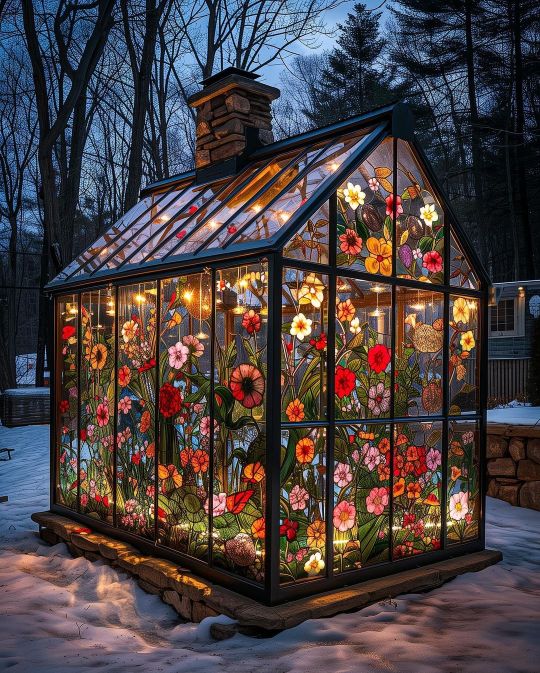
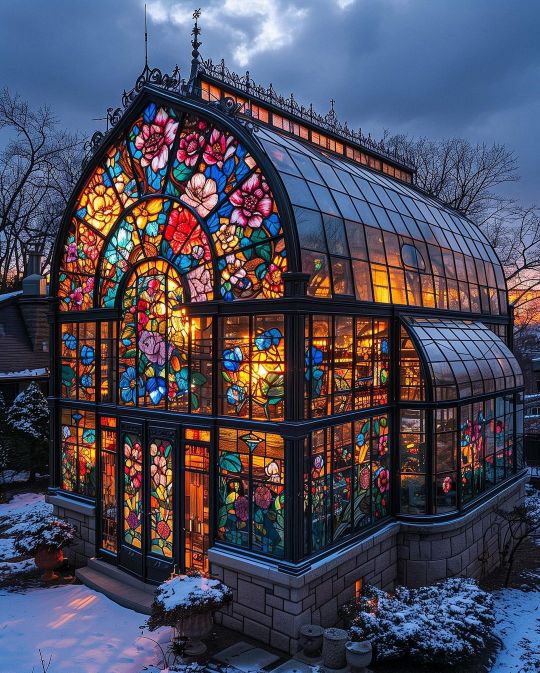
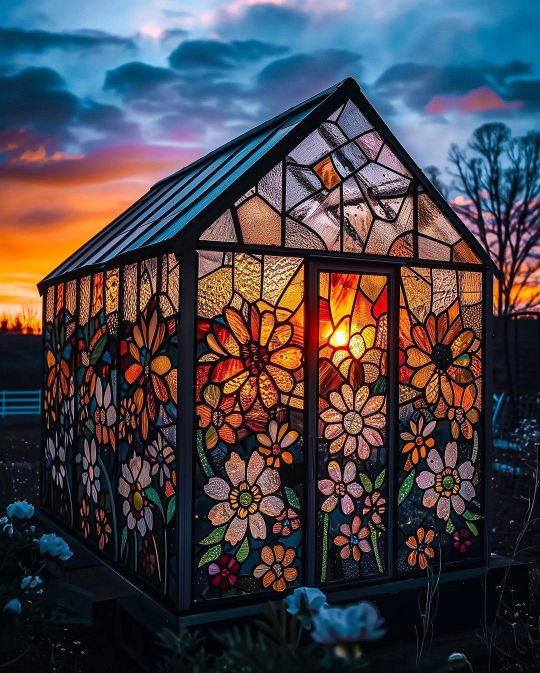
#landsccape#paradise#nature#adventure#explore#travel#travelling#cottagecore#naturecore#aesthetic#photography#landscape#art#arhitecture#gothic architecture#gothic#chaotic academia#photographers on tumblr#dark acadamia aesthetic#cottage witch#flowers#curators on tumblr#home decor#home lifestyle#desing#fashion#alternative#scenery#moodboard#full moon
65K notes
·
View notes
Text
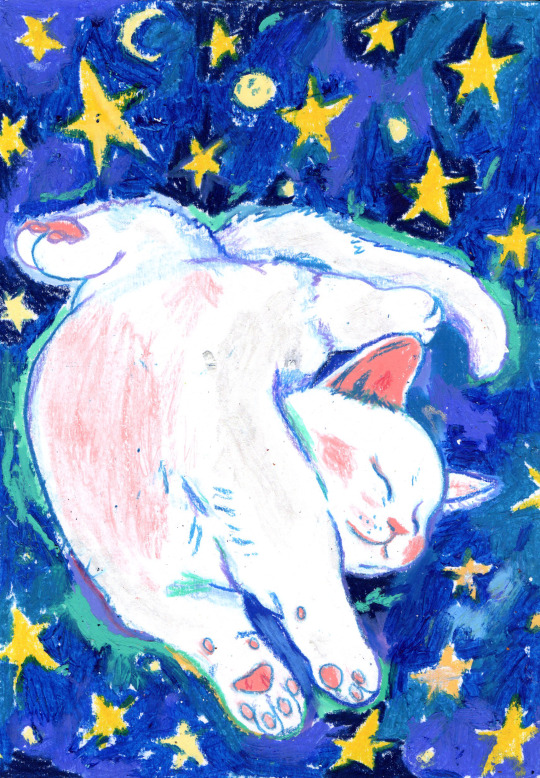
Falling Through Dreams.
72K notes
·
View notes
Text
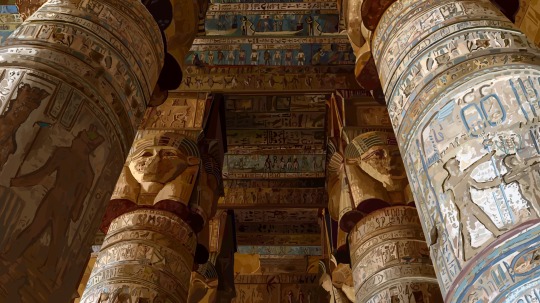
I know this isn't ninjago guys but I finished this 17 hour painting for my art class and I was proud of it so...enjoy.
I love Egypt fun fact about me. :) [ID: a detailed, realistic painting of the hathor columns at the dendera temple complex in dendera, egypt. /end ID]
#my art#art#egypt#egyptian#egyptology#egyptian art#ancient egypt#antiquity#ancient art#ancient egyptian#painting#digital painting
151K notes
·
View notes
Text
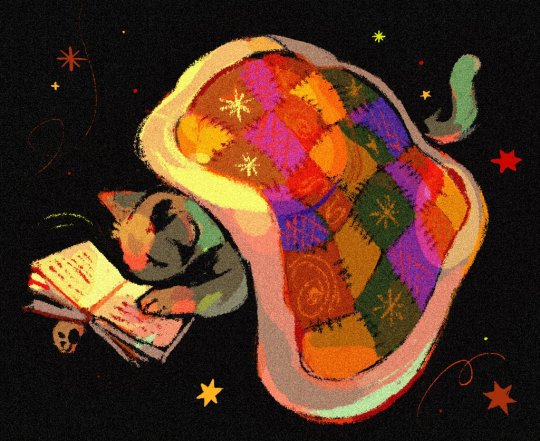
💥✨️
103K notes
·
View notes
Text

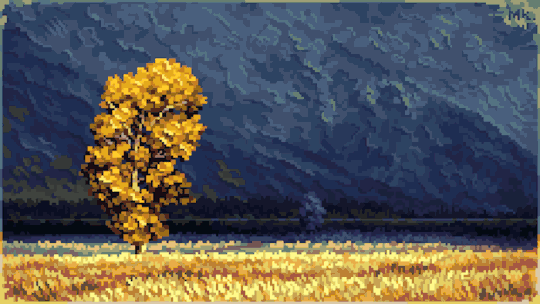
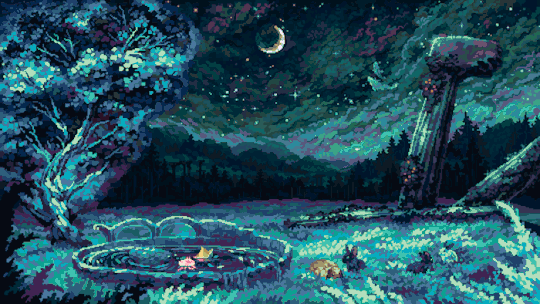
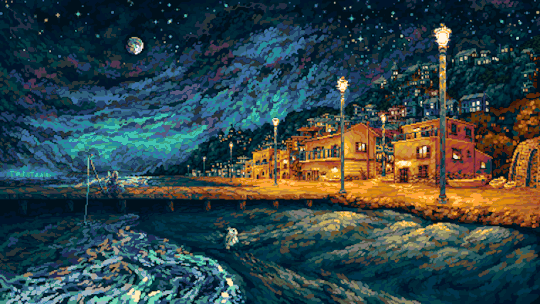
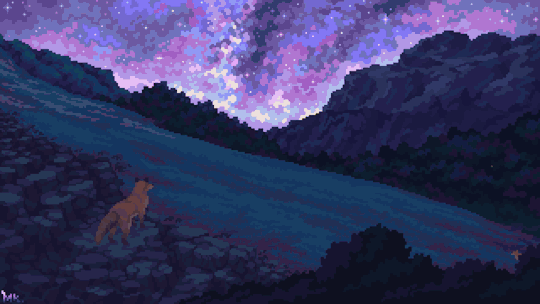
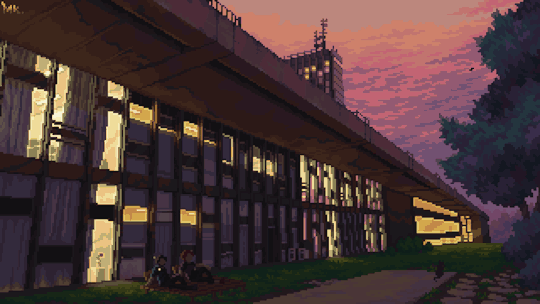
Moments in time, preserved through sentiments Twitter | Ko-Fi | Patreon
234K notes
·
View notes
Text
a list of random art tips i’ve learned over a long time
The elbows are near the same height at the belly button
the hands go about 1/3 of the way down the thigh
add fewer folds in clothes than you think you need
The colors of shadows look different depending on what color your light source is
THE DIFFERENCE BETWEEN HARD LINES AND HARD SHADOWS
if you don’t like doing highlights digitally in procreate, add a black layer over the whole drawing, then click the little N of the layer and scroll down to Color Dodge. pick a color for your highlights and draw. Use a soft airbrush to create glow, use a harder brush to create sharper lines
if something is out of your skill level but you really wanna draw it, get a reference! It’s ok to trace! It will help you get better!
think of objects and people as piles of shapes if you are having trouble with positioning
if you don’t like drawing the other eye: copy and paste, cover it with hair/hat/eye patch/hand/scarf/literally anything you can think of
try new styles! it doesn’t matter if it looks good or not, but now you know what you do/don’t like doing, what you’re good/not good at, and what you want to improve on!
when you’re drawing profile heads: add a little extra length to the back of the head. heads aren’t perfect circles. doing this will make the face, ear, and jawline feel much less cramped.
this is a personal preference, but i like to find old photos from like the 40s and 50s to use as references because people got really wild with how they posed and i find it helps with angles and positioning
heres an exercise i like to do to help with positioning: draw a few pairs of circles, make them at all different angles. then, so back and use those circles as placements for hips and shoulders and draw the first pose that comes to mind. keep it simple, but try to make it natural
(I’ll add more when I think of more)
831 notes
·
View notes
Text
The problem with "I could do [X popular modern art piece]" being responded to with "then go ahead and do it!" is that I think the point that a lot of people are making is not so much "this artwork has no value" but rather "modern popular art is a heavily gatekept industry that you cannot enter into without requisite pre-existing social cachet".
So even if someone is technically/artistically able to create something on the level of a gallery piece (and, to be honest, I think substantially more people have that ability than anyone would be likely to admit) they do not exist in an environment where they have the financial freedom or recognition for that to be possible or worthwhile.
I assure you that there are millions of people who absolutely could and would want to make Pollock style abstract paintings or giant time-consuming sculptures made with garbage or whatever, but they're currently stuck in a low wage job and if they quit in order to make their masterpiece then nobody would bat an eye and they would go broke because they wouldn't have the sociocultural weight to impart that special numinous reverence that "high art" is granted, and which makes it financially viable as a thing to spend your time doing.
It is also true that a lot of people who have that cachet are able to spend their time making pretty much whatever, and will still be able to support themselves even if the art itself is fairly mediocre outside of the time dedicated to its creation.
Anyway, I feel that people are perfectly valid in feeling a sense of vague resentment at that when they visit galleries holding paint/canvas combinations that sell for more than they will earn in several years. I mean it speaks to what society is implying about their worth as a person. I don't think that it's as much about arrogance and entitlement as people like to pretend, because a lot of that comes from buying into the mystique of the Worthy Artist anyway.
5K notes
·
View notes
